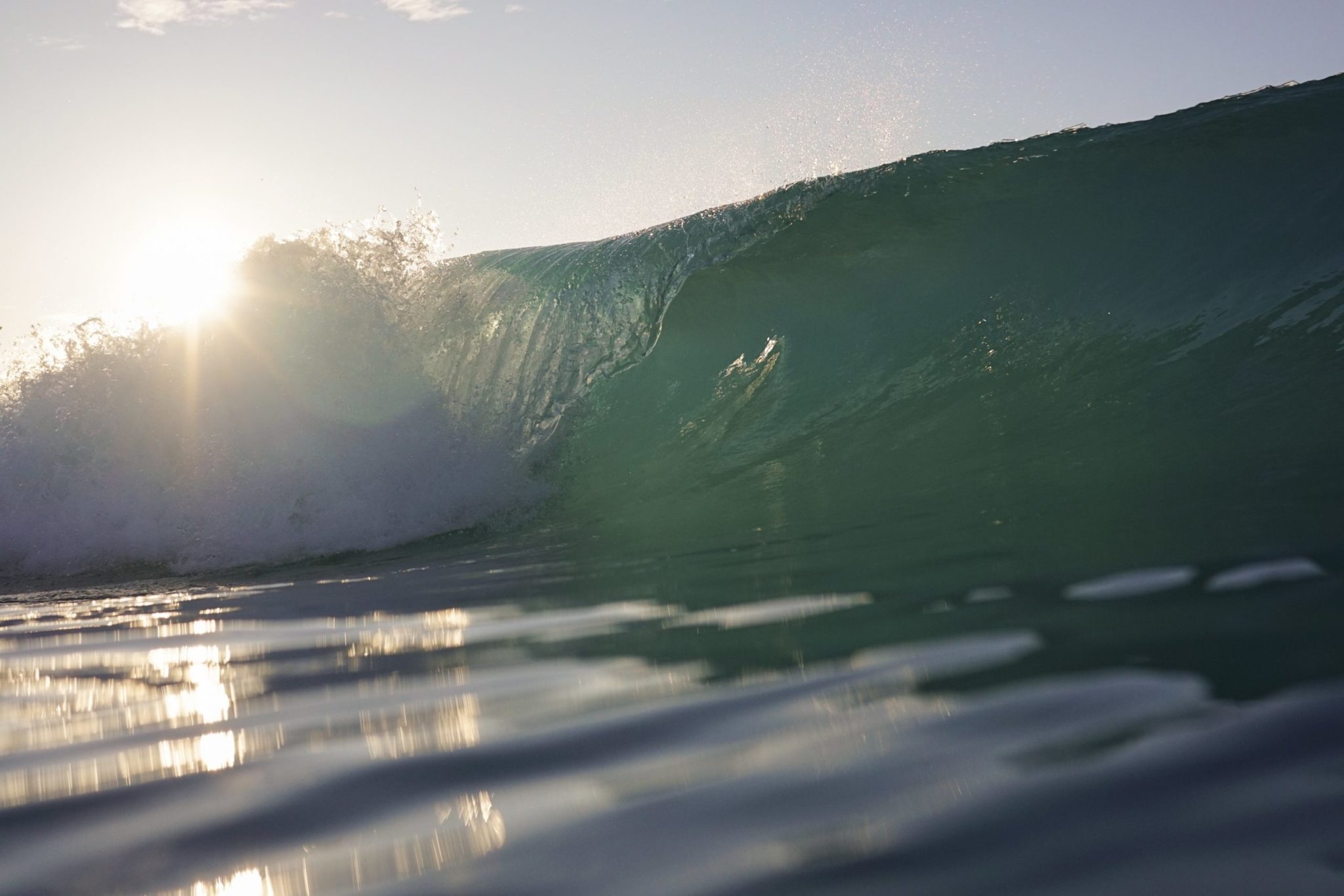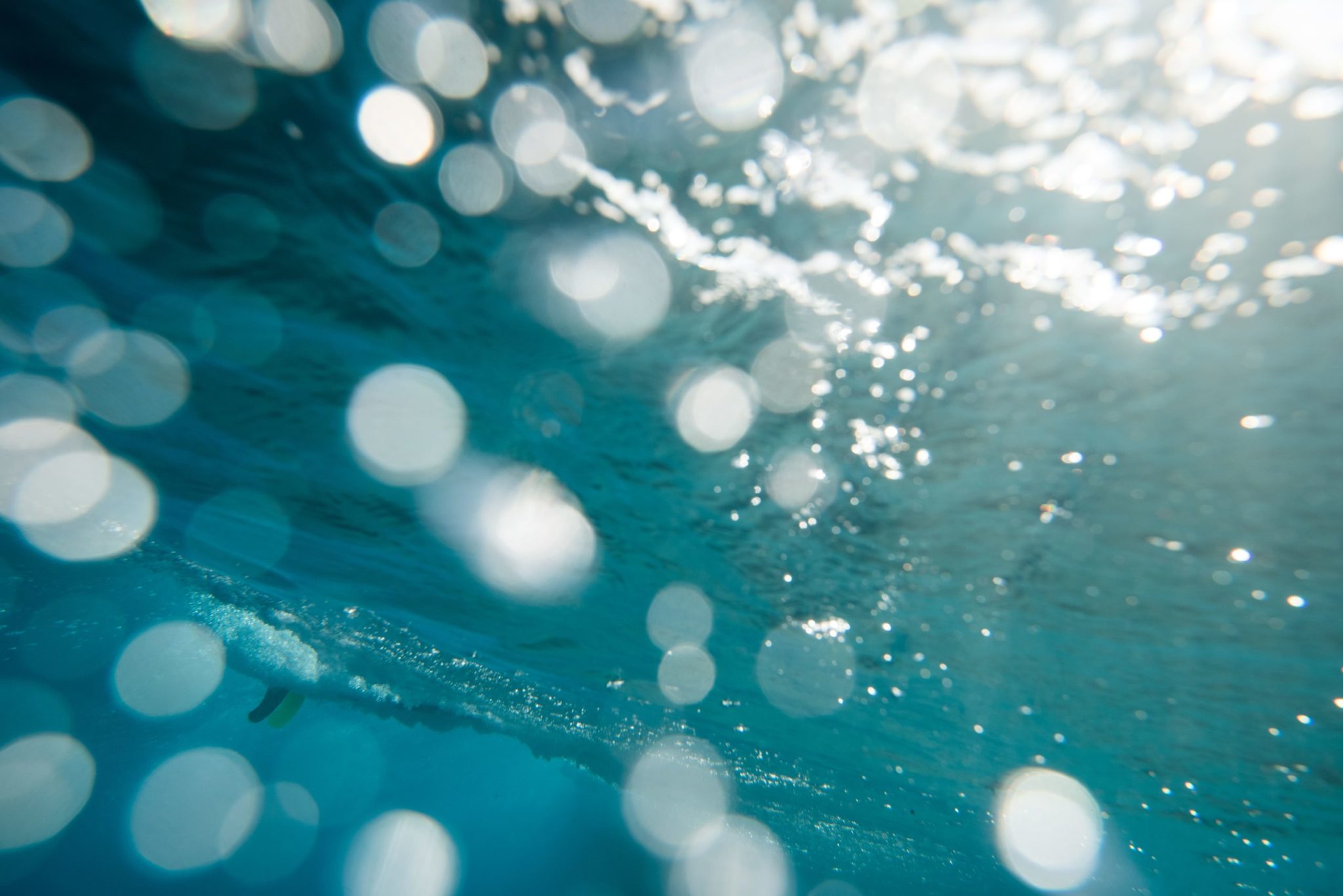The positive power of surfing and ‘blue space immersion’ has long been used to boost the confidence and personal wellbeing of people around the planet. But what about the scientific evidence to prove these benefits? Over the last few years there has been the first pulse of a future wave of academic papers and PhD theses exploring blue health, from surf scientists such as Easkey Britton, Natalie Fox and Jamie Marshall, who is soon to complete the world’s first doctorate on surf therapy at Edinburgh Napier University (beautifully documented at stokedresearch.com).
Jamie is from Innerwick, East Lothian, Scotland, and started surfing at age 14 to counter the anxiety he was experiencing at school from bullying. Jamie recalls:
Surfing provided a bit of an escape for me, but I also identified as a surfer from that point on and that was something no one could take away from me. I’m sure one thing on which all surfers would agree is that being in the water feels good. For some this may be down to the community they find there, for others it may be a personal connection with the energy of a wave or overcoming the challenge of riding their own personal big wave. My own personal journey into wave sliding involved some very negative experiences at school whereby surfing became my safe space, a place where negative thoughts, opinions and emotions could not touch me. It was my privilege later in life to be able to offer this same safe space to others in the form of surf therapy intervention.
After working with the Wave Project in Cornwall, Jamie set up the Scottish Wave Project centre in Dunbar, transforming it in five years from a pilot to supporting over 100 young people a year across Edinburgh and the Lothians in partnership with the NHS’s Child and Adolescent Mental Health Services.
Jamie explains:
I soon learned that for surf therapy to thrive, I really had to stress the foundational nature of safe spaces throughout the work. This is because safe spaces underpin mastery, respite and positive socialisation. We have to be aware as surfers that the line-up is not always a safe space. Many a surfer will have been caught up in the politics of the local beach at some point. So I quickly worked out that we need to ensure all our blue spaces are also safe spaces - free from judgement, pressure, machismo, toxic competitiveness - if we are to use them for therapeutic purposes.
Throughout the experience, Jamie moved past anecdotal ‘evidence’ towards accurate fact, drawing on academic research methods through studying for a Masters degree. He set out to articulate precisely how successful surf therapy may be delivered. His thesis revealed how the experiences of mastery (recognising, learning and celebrating new skills to boost confidence, self-esteem and belief in one’s own ability), respite (escape from negativity through fostering a compassionate safe space), and social connections (meaningful social interactions) gained through the surfing experiences positively shifted identities. A key was how such experiences were then translated into everyday life for the participants of the programmes. It is no good simply experiencing change in the ‘blue room’ if this is not transferable to everyday life, or long lasting.
Jamie’s academic journey then evolved further into PhD study, working with global perspectives of how to successfully implement surf therapy programmes, for example with Waves for Change in South Africa and Liberia. Jamie expands:
Post-conflict zones such as Liberia are characterised by the breakdown of social support at every level, from national infrastructure to basic family units. By providing these safe spaces, Waves for Change has been providing access to something incredibly fundamental to mental health and day-to-day positive functioning in locations where access is extremely limited. What seems novel is the complete sense of respite that young people are getting through these states from negative emotions, freedom from the stressors they are facing in day-to-day life. While temporary, this escape works like a powerful medication providing relief and hope in the knowledge that such stressors can be overcome. This science is very new, exciting and needs on-going work, but is the reason around the world practitioners are now speaking of ‘evidence-based surf therapy’ with increasing confidence.
While a number of other researchers have published work on how physical activity impacts mental health such as depression, anxiety and post‐traumatic stress disorder, Jamie’s peer reviewed papers have highlighted the ground-breaking role of surf therapy within health, social and developmental settings.
Natalie Fox, surfer, scientist and yoga teacher with a Masters in Sustainability, has researched a brilliant paper exploring the relationship between surfing and ocean literacy, measuring how surfers understand ocean processes and human-ocean interconnections, and can therefore be harnessed as stewards of our shared blue spaces. And for other blue health researchers, the role of water has proved a significant feature on new work exploring how cold-water swimming could delay dementia through releasing increased levels of a ‘cold-shock’ protein known as RBM3. This is trailblazing work as there are currently more than 850,000 people who have dementia in the UK, and, according to the NHS, the condition affects one-sixth of those over the age of 80.
It is clear that mental health, especially psychosocial wellbeing or the ability to be with others with confidence, can be improved with therapeutic nature-based practices and investment in blue spaces. But, with all this growing evidence of the benefits, how do we better manage our blue spaces, at risk from over development, environmental change and biodiversity loss, to better harness these positives over the long term? This is where the power of story can be important, in a qualitative research world where narrative is an important data-gathering and data-analysis method. Irish surfer and marine social scientist Easkey Britton explains more:
During the Covid-19 pandemic we are having to create a new language and new stories to make meaning in such a rapidly changing world. Icelandic activist and author Andri Snaer Magnason argues that we often struggle to talk about some of the most important issues of our time because global issues like ‘climate change’ and ‘ocean acidification’ are so huge that all meaning collapses. Therefore the need for new stories and experiences are key to connecting people with the sea.
One such project is the so-called Strategic Research Agenda on Oceans and Human Health (and part of the EU-funded Seas Oceans and Public Health in Europe). This project collates evidence of how the health of seas, oceans, blue spaces and humans are inextricably linked, where research and collaborative approaches such as shared narratives need to inform policies to protect the health of seas, oceans, blue spaces and people. Easkey continues:
This new research agenda and framework presents an opportunity for a new way of understanding our relationship with blue spaces that addresses complex challenges in a holistic way, humanising the environmental crises. Stories help us make sense of the world, our places within it, and can spark curiosity and wonder that can form new connections, new ideas and new ways of thinking about blue space and our relationship with it. This is essential if we are to evolve to an ocean literate culture. For example, the story of our planet - a watery sphere, enveloped in ocean with springs, streams, canals and rivers all around and under us and with all this water flowing eventually to the sea.
Easkey concludes:
The potential benefits for health and wellbeing through connection to water, and through these connections, engaging people in protection and conservation, is a ripe place for communities to be pioneering, and in the process, help to ‘build back better’ following the societal upheaval caused by Covid-19. I believe the pandemic represents a unique opportunity to bring the ocean literacy principle of the interconnectedness between ocean and human health into mainstream culture. This will require mutual cooperation and support on a global scale that we have now seen is possible - exploring ways that these diverse perspectives recombine, accelerating awareness, literacy and action through innovation, experiences and communications, and above all, fostering a culture of care for our ocean.
In an era of high scepticism, it is important that we place faith in rigorous evidence-based studies to inform policy. This will help to shape blue-based interventions that not only help communities and the planet, but count at the individual level, shifting levels of confidence and capability and shaping new identities. 
